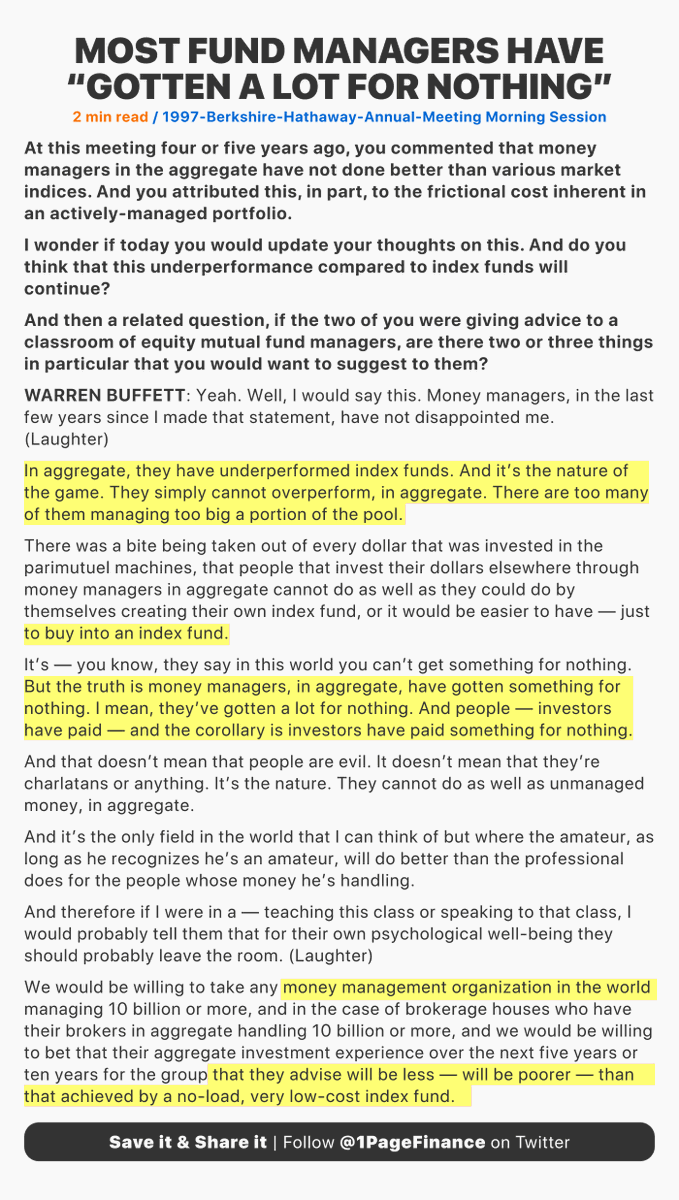Amongst other performance details, what we miss out while selecting an actively managed mutual fund is the AUM.
In equity, moderate the better. In debt, higher the better.
#investing
More from Kirtan A Shah
More from Mfs
A financial advisor that charges an annual fee of 1% on assets under management
Essentially takes 50% of your dividend income, if your portfolio yields 2%
That's substantially worse than the highest rate on qualified dividends of 23.80% today
Few understand this
I agree with this
Essentially takes 50% of your dividend income, if your portfolio yields 2%
That's substantially worse than the highest rate on qualified dividends of 23.80% today
Few understand this
I agree with this
After 34 years in the business, I just can\u2019t get my head around how an adviser can justify charging a client any more that $2,000 per year for financial advice, and 0.25% per year for asset management if needed. There may be outliers that cost more, but those are the expectation.
— Rick Ferri (@Rick_Ferri) June 15, 2021






























